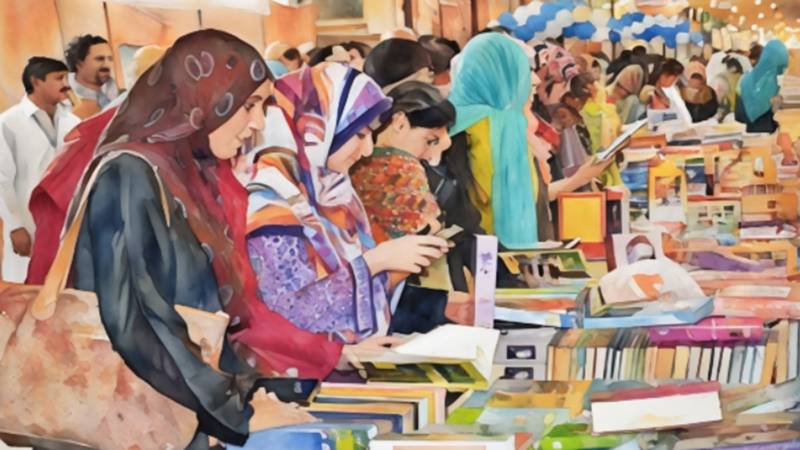
I often find myself wondering if societies that read more are also more developed. Certainly, cultures who have a tradition of learning and knowledge are more prosperous and progressive.
I’ve been lucky to have had a lifelong reading habit. Just now I took out Walden that had been waiting patiently on the shelf for several years. Walden is an ode to nature and solitude written by Henry David Thoreau during his one year sojourn in a cabin in the woods of Massachusetts. I’ve had this hankering to be closer to nature somehow. Maybe Walden would be a good start. We would all do well to at least remain on nodding terms with nature, be more aware of it, lest it engulfs us completely in the form of global warming.
The sheer number of books that I want to get to is overwhelming and I have this foreboding feeling that I will never read all that I want to. As I grow older I feel the urgency of time ever more-- it’s inexorable march forward makes me think there’s so much I won’t get to, so I must get to as much as I can.
Somewhere along my reading path, I must always return to Chekhov. That master of the short story is like reaching an oasis after an arduous journey. The world makes a little more sense as soon as you get to Chekhov. Not many writers have captured the human condition through the mundane like he did.
As a Pakistani, you cannot think about short stories and not think of our own Manto, who told the truth in the barest of forms, not hiding any of the ugliness. For his bold stories he was charged with obscenity, and fought several court battles. Once Ahmed Nadeem Qasmi had tried to knock some sense into him. In response Manto had this to say:
“... I have made you my friend, not the mullah of my heart’s mosque.”
Perhaps Pakistan could learn from this-- we shouldn’t try to impose our morality on others and keep it to ourselves, deep in our hearts.
Muslims have not just been the People of the Book, they have also been the people of books, of reading and learning, belonging to open and tolerant cultures-- a forgotten part of Islamic tradition that we would do well to recall
The last book I finished is Zuleikha. It’s a historical novel placed in the aftermath of the Russian revolution. I have loved reading it and will explore more by the author, Guzel Yakhina. Through it I have learned more about the horrors of the Russian revolution and how it affected common people. That’s the beauty of historical fiction-- it can enthral you and draw you into a fictional plot while you learn about a distant land or time.
And then there’s the wonderful four book series called The Cemetery of the Forgotten Books, which whisked me away to the mists and shadows of a distant Barcelona, of the time of the Spanish Civil War, from where I didn’t want to come back. A fair warning-- if you start reading this series you won’t be able to put it down, but perhaps that’s exactly what you need-- a momentary escape from the absurdity and tyranny of daily life.
Books can give you perspective on life; learning not just about other people but also animals and their hardships makes you feel like you are a part of a bigger whole; your troubles don’t seem so monumental anymore.
My childhood was spent reading entirely in Urdu. The Amir Hamza and Umroo Ayar series have remained with me like no other book. My friends and I would role play from the series during recess at school. I was also a big fan of Ishtiaq Ahmad’s Inspector Jamshed series and Ibne Safi’s Imran series. Perhaps the books I read back then did more to instil in me a love for reading than any other. But in recent years my Urdu reading has been horribly inadequate. I aim to remedy that. Perhaps I’ll start with Tasaware Khuda or Sakafti Ghuttan by Arshad Mahmood, an author I came across on YouTube recently. His views on what ails Pakistani society are well worth listening to.
Al-Mamun, the Abbasid caliph (813-833 AD) had a passion for knowledge and learning. He was especially impressed by Aristotle and other Greek philosophers and had their books translated into Arabic, giving birth to the famed translation movement of Baghdad. Al Mamun’s House of Wisdom had more than four hundred thousand books at a time when largest library in Europe had only a few hundred. In his quest for knowledge Al Mamun established an open and tolerant society, which welcomed scientists and scholars from all parts of the world, making Baghdad the centre for science, art and culture. Perhaps more than anything else his tolerance for varied people and ideas was responsible for the advent of the golden age of Islam. Strides were made in sciences and arts that would later be transported to Europe and the rest of the world.
Muslims have not just been the People of the Book, they have also been the people of books, of reading and learning, belonging to open and tolerant cultures - a forgotten part of Islamic tradition that we would do well to recall.
Pakistan, too, should feel the urgency of time: the need to establish a tolerant culture that welcomes a diversity of ideas and people, a culture that holds learning and knowledge as cherished values.
And perhaps politicians should be asked to share with people what books they are reading, if any, or which have influenced them. The government could declare June or July as National Reading Month. What better way to spend the lassitude of the summer months than to read?

